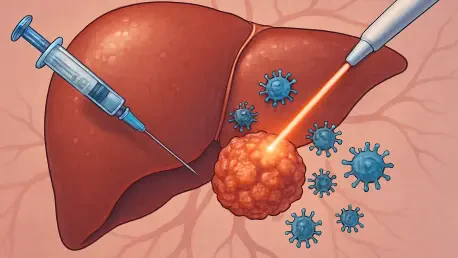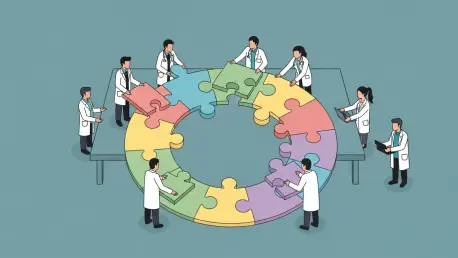
A groundbreaking therapeutic strategy that combines a systemic targeted drug with a standard locoregional treatment is showing unprecedented promise in preventing the recurrence of hepatocellular carcinoma (HCC) among high-risk patients who have undergone surgery. This comprehensive analysis of a

Today we're speaking with Ivan Kairatov, a biopharma expert with deep insights into the technological innovations shaping modern medicine. We'll be delving into a remarkable breakthrough in oncology: a new, highly targeted procedure for treating metastatic uveal melanoma, a rare and aggressive eye

The pharmaceutical industry is in the midst of a monumental technological pivot, committing billions of dollars to the promise of artificial intelligence agent platforms in a bid to revolutionize its long-standing operational models. Spearheaded by landmark collaborations like the global

The completion of a rolling Biologics License Application (BLA) by Ultragenyx Pharmaceutical Inc. represents a potential turning point for individuals living with Glycogen Storage Disease Type Ia (GSDIa), a relentless genetic disorder. The submission to the U.S. Food and Drug Administration is for

As a biopharma expert deeply embedded in the intersection of technology and research, Ivan Kairatov offers a pragmatic perspective on the integration of artificial intelligence into medicine. He navigates the hype surrounding large language models to focus on the rigorous clinical evaluation needed

The persistent challenge of keeping participants engaged in clinical trials has long been treated as a problem that begins only after a patient has consented, but this narrow viewpoint overlooks the vast majority of individuals who disengage before ever setting foot in a clinic. For years, the